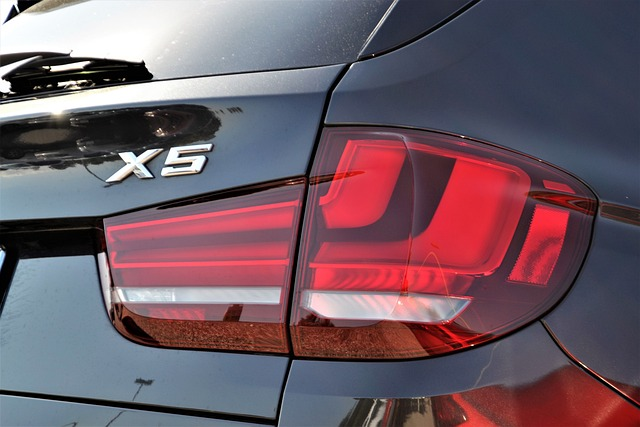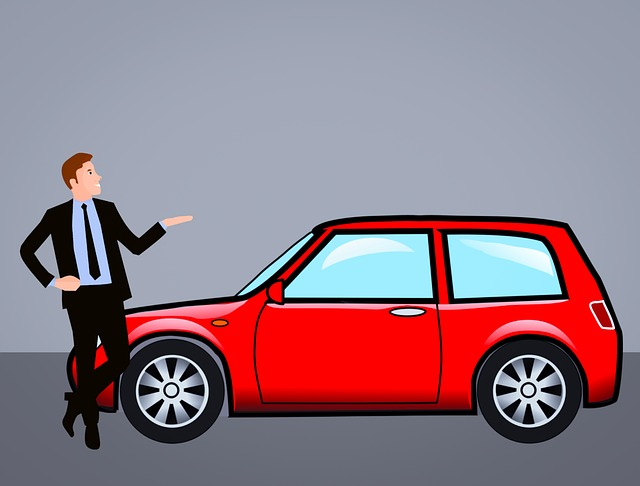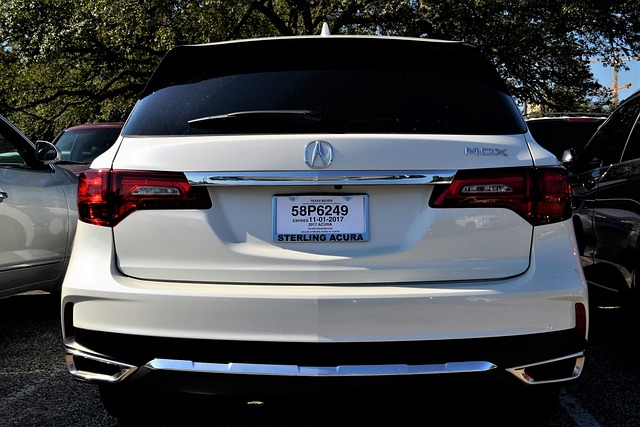Reviewed by: Attorney Chuck Panzarella
KEY TAKEAWAYS
- Used cars have rights too. Dealerships and even private sellers can’t hide major problems from you. Depending on your state, they might have to tell you upfront.
- “As-is” doesn’t mean all hope is lost. Even if a car is sold “as-is”, you might still have a case if the seller hid a serious issue they knew about.
- Lemon laws help sometimes. Used cars can also be lemons. If a problem is serious enough and can’t be fixed after several tries, you might get a refund or replacement. Rules vary by state, though.
- Do your homework to avoid trouble. Always research a car’s history, have a mechanic check it, and read the paperwork closely before buying.
- Lawyers can help, don’t stress alone. If you think you were tricked, an auto fraud lawyer can look at your situation for free and tell you if there’s a case.
Purchasing a used car can be a great way to save money, but it also comes with its own set of challenges. What happens if you find damage on the new car sometime after the purchase? What if you bought a used car from a dealer with existing problems?
This article explores the legal rights of consumers when buying used cars, including the laws governing disclosure of implied warranties, down payment of defects implied warranties, lemon laws, and manufacturer’s warranties.
Additionally, it provides tips for ensuring a safe and secure used car purchase, including researching potential purchases, obtaining vehicle history reports, and having a trusted mechanic inspect the vehicle.
Ultimately, by understanding your rights and taking the necessary precautions, you can make a wise and informed used car purchase.

Bought a Used Car from a Car Dealership with Problems?
If you bought a used car from a dealer with existing problems, you may have some legal rights that can help protect you.
It’s important to understand the laws in your state, as each state has different rules when it comes to buying and selling used cars. In some states, dealers are required by federal law to disclose certain issues to buyers before they purchase the vehicle. This includes any known damage or defects that dealers say could affect the value of the car.
If this information was not disclosed by the dealer prior to the sale, you may be able to seek compensation for any repairs or other costs associated with mitigating the issue.

Bought a Used Car from a Private Seller?
When purchasing a used car from a private seller, it is important to do your own research and inspect the new car very thoroughly before you buy. If there is an issue with the car that was not disclosed to you, it can be difficult to seek recourse from a private seller.
You may be able to recover some of your losses if the seller knew about or should have known about the problem prior to the sale. In any case, if you’ve found damage on a used car after purchase, document it as best you can and contact a qualified legal professional for advice on how best to proceed.
With proper documentation and evidence of existing issues, you may be able to have the legal right to take action against either type of seller in order to seek compensation for damages.

Purchasing a Vehicle “As-is” Provides You Certain Rights
When purchasing a used vehicle from any seller, it is important to understand the terms of sale, service contract, and sale.
In many cases, buyers will purchase a car sold as “as-is” which means that the buyer is responsible for any repairs or issues after the sale. However, even when vehicles are purchased as-is, there are certain rights in place to protect buyers.
Depending on your state laws, you may still be able to seek compensation if the issue was not disclosed prior to the sale or if it can be proven that the buyer or seller had knowledge of an existing defect at the time of the sale or purchase.

I Just Bought a Used Car. It Does Not Work Properly. What Can I Do?
If you recently purchased a used car that does not work properly, it may be best to contact an experienced attorney who can help protect your rights and advise you on the best course of action. Depending on the specific situation, there may be legal options available to pursue compensation from either the auto dealer or private seller.
In any case, it is important to document any evidence of existing issues and obtain proof that the problem was not disclosed prior to the sale. An experienced attorney can review your case and provide guidance on how best to proceed.
Used Car Lemon Laws Differ from One State to Another
In addition to understanding the laws applicable to dealers and private sellers, it is important to familiarize yourself with your state’s lemon laws. Lemon laws are designed to protect consumers from issues associated with buying faulty vehicles new or used.
Lemon laws vary from one state to another, so it’s important that you understand the specific requirements in your own state in order to determine if they apply to your particular use or situation. If you feel that a used car purchase falls under the protection of a particular used car dealer, or lemon law, contact a qualified legal professional for help navigating these complex regulations.

Car Safety Tips
In addition to understanding the laws, there are some simple steps you can take to ensure that you get the most out of your used car purchase. Some of these tips include:
- Research any potential purchases beforehand and look for any reviews or reports associated with a particular make or model.
- Request a vehicle history report which can provide valuable information about any damage or mechanical problems, with the car’s past owners.
- Have a trusted dealer or independent mechanic check out the car before making a purchase to identify any potential issues and estimate repair costs.
- Make sure to read all documents carefully prior to signing anything and ask questions if anything is unclear.
By taking these precautions when looking for a used vehicle, you can ensure that your purchase is a safe and secure one.
Laws Governing Used Cars Aren’t Always Specific
While there are many laws in place to protect consumers when purchasing used cars, it is important to remember that these laws aren’t always specific to vehicles. The best course of action is to be prepared and take steps to protect yourself prior to making any purchase.
If you have any concerns or questions about a potential used car purchase, contact an experienced attorney who can help guide you through the process and explain your rights as a consumer. With proper research, an understanding of the law, and support from a qualified legal professional, you can make sure that your used car purchase goes as smoothly as possible.

Make Sure to Take Your Time and Shop Around Before Making a Decision
Additionally, be sure to check for any recalls or other safety issues associated with the particular make and model of vehicle you are considering purchasing. Lastly, never hesitate to ask questions if something doesn’t seem right. Having the advice of an experienced attorney can help you make sure that your rights are protected and that you have the best chance of obtaining a fair outcome.
Does the Used Car You Purchased from a Car Dealer Qualify as a Lemon in California?
The California Lemon Law provides protection for consumers who purchase or lease new and used cars from car dealers in the state.
The law applies to vehicles, both the new cars and used cars that are still under warranty, but there are specific requirements that must be met in order for a car to qualify as a “lemon”.
In General
In general, for a car to qualify as a lemon under the California Lemon Law, it must have been purchased at an authorized dealer and demonstrate significant problems despite a dealer warranty and having received multiple attempts at repair by certified professionals.
Additionally, the issues must have occurred within 18 months of purchasing the vehicle or 18,000 miles on the odometer.

How Many Repair Attempts Must Be Made Before a Customer Can Expect a Refund or Replacement?
Under the California Lemon Law, a consumer of a vehicle is eligible for either a refund or replacement of the vehicle if it has been presented to an authorized dealer for repair at least four times within 18 months from purchase.
30 Days Protection
The law also provides protection in the event that repairs have rendered the car inoperable for more than 30 days, even if fewer than four attempts needed repairs have been made.
What Are the Terms of a Manufacturer’s Warranty When It Comes to Used Cars from Car Dealers?
It is important to understand your rights, as well as the terms and conditions associated with any agreement you enter into so that you can be sure you are receiving fair treatment.
Knowing when you might qualify for compensation under state lemon laws, understanding how many repair attempts must be made before expecting a refund or replacement, and familiarizing yourself with applicable warranty terms will ensure that your used car purchase experience is as hassle-free total cost, as possible.
How to File a Complaint Against a Dealer or Private Seller
If you have experienced any issues while buying a used car, it’s important to document everything and take the necessary steps to ensure that your rights are protected.
You can file a complaint with the California Department of Motor Vehicles (DMV) if you feel that a car dealer or private seller has violated the law in any way. The DMV will investigate your claim and if necessary, pursue legal action against the dealership or the dealer’s advice responsible party.
By taking all these precautions when looking for a used vehicle, you can better protect yourself from potential scams or other fraudulent activities than would otherwise be possible. Doing your research and taking your time to find the right used car can go a long way in making sure you get a great deal.

Common Used Car Problems and How to Spot Them
Check for dents and scratches on the body, listen for any strange noises coming from under the hood, look at all interior components (seats, dashboard, etc.) for signs of wear and tear, and make sure all components are in working order
It is also wise to have the vehicle professionally inspected by a qualified mechanic before you commit to purchasing it. This will help ensure that all major systems are functioning properly and there are no hidden issues or defects. Be sure to obtain a history report of the vehicle and the manufacturer’s warranty for safety, if possible. This will reveal any past accidents or repairs that may indicate potential
Understanding the Difference Between a Material and Immaterial Defect in a Used Car
It is important to distinguish between a material and an immaterial defect in a used car. A material defect is one that affects the overall safety, performance, or resale value of the vehicle. This could be something as serious as faulty brakes or transmission problems.
An immaterial defect is one that does not significantly impact the safety, performance, or resale value of the vehicle such as small scratches and dents on the body.
Although these issues may still need to be addressed, they won’t necessarily disqualify the car from being legally sold and can often be easily fixed by either you or the seller prior to purchase.
When it comes to used cars, it’s always best to do your research ahead of time and make sure you know exactly what to look out for. This will help ensure that you get the least price, the best possible deal, and a reliable car to boot.
Finally, remember that state lemon laws provide protection should repairs fail to resolve a problem at least four times within 18 months from purchase. Knowing when you might qualify for compensation under these laws and warranty, can help give you peace of mind when buying used cars from dealerships or private sellers.
By taking all these precautions when looking for a used vehicle, you can better protect yourself from any unexpected problems and enjoy your new ride with confidence.

How to Negotiate the Price of a Used Car to Account for Known Defects
If you have found a used car that has a known issue or defect, it is important to negotiate the purchase price and make sure it accounts for the fact that repairs may be necessary.
When negotiating the price of a used car, you should always try to get the seller to reduce their asking price by an amount that covers any potential repair costs you may incur due to flood damage due to the existing defect. This will help ensure that your purchase does not end up costing more money than expected over time.
It can also be helpful to consult with a qualified mechanic prior to purchasing a used car so they can provide an estimate of what fixing the defect might cost. Having this information in hand when negotiating can give you leverage and allow you to confidently reach an agreement that is fair for both you and the seller.
Make sure to thoroughly inspect the vehicle for any potential problems or defects and get a history report if possible. Negotiating the purchase price can also help to ensure that you are getting a good deal by accounting for the cost of any necessary repairs due to existing issues.

The Benefits and Risks of Buying a Used Car Without a Warranty
Buying a used car without a warranty can be a great way to save money, but it does come with some risks.
One Option
On the one hand, you may be able to purchase a vehicle for significantly less than buying a new one and have more wiggle room in terms of negotiation if there are known defects.
Other Option
On the other hand, purchasing a car without a warranty may leave you on the hook for any repairs or maintenance that is necessary due to existing issues or wear and tear over the time of the sale. This can add up quickly and end up costing you much more in the long run than buying a vehicle that comes with an extended warranty.
It is important to weigh your options carefully when considering whether or not to buy a used car without a warranty. Make sure you do your research and if possible, consult with a qualified mechanic to get an estimate of what any necessary repairs might cost.
Consumer Protection Laws
Remember that even if the vehicle does not come with a warranty, there may still be protection available through state lemon laws or other consumer protection laws. It is always best to know all of your options prior to purchase so you can make an informed decision about whether or not a used car without a warranty is right for you.
Understanding the Different Types of Used Car Inspections and When to Use Them
When purchasing a used car, it is important to be aware of all potential risks and take the necessary steps to avoid getting stuck with a lemon. This includes thoroughly researching the vehicle’s history, having an independent mechanic inspect the car, and negotiating an appropriate purchase price that accounts for any known defects or issues
Financing a Used Car: Tips and Tricks for Getting the Best Deal
When it comes to negotiating a used car purchase, it is important to be aware of your rights and have all necessary information in hand before entering into negotiations. Do your research beforehand so you can get an idea of what the vehicle should cost and suggest a fair price that covers any potential repair costs.
What to Do if You Suspect Odometer Tampering on a Used Car
If you are considering purchasing a used car without a warranty due to the savings involved, make sure to weigh the risks carefully. Have a qualified mechanic inspect the vehicle prior to purchase so they can provide an estimate of what any necessary repairs might cost and negotiate an appropriate price that accounts for those costs.
What to Look for in a Used Car’s Service History
When purchasing a used car, it is important to be aware of all potential risks. One possible risk is that the vehicle may come equipped with a stolen vehicle tracking device. Before buying the vehicle, make sure to ask for and inspect any paperwork related to the installation or removal of such a device. If the used car you are considering comes with a stolen vehicle tracking device, it is important to properly deactivate the device before taking ownership of the vehicle. This can be done either by contacting the manufacturer of the device or having a qualified mechanic check and remove any suspicious wiring.
